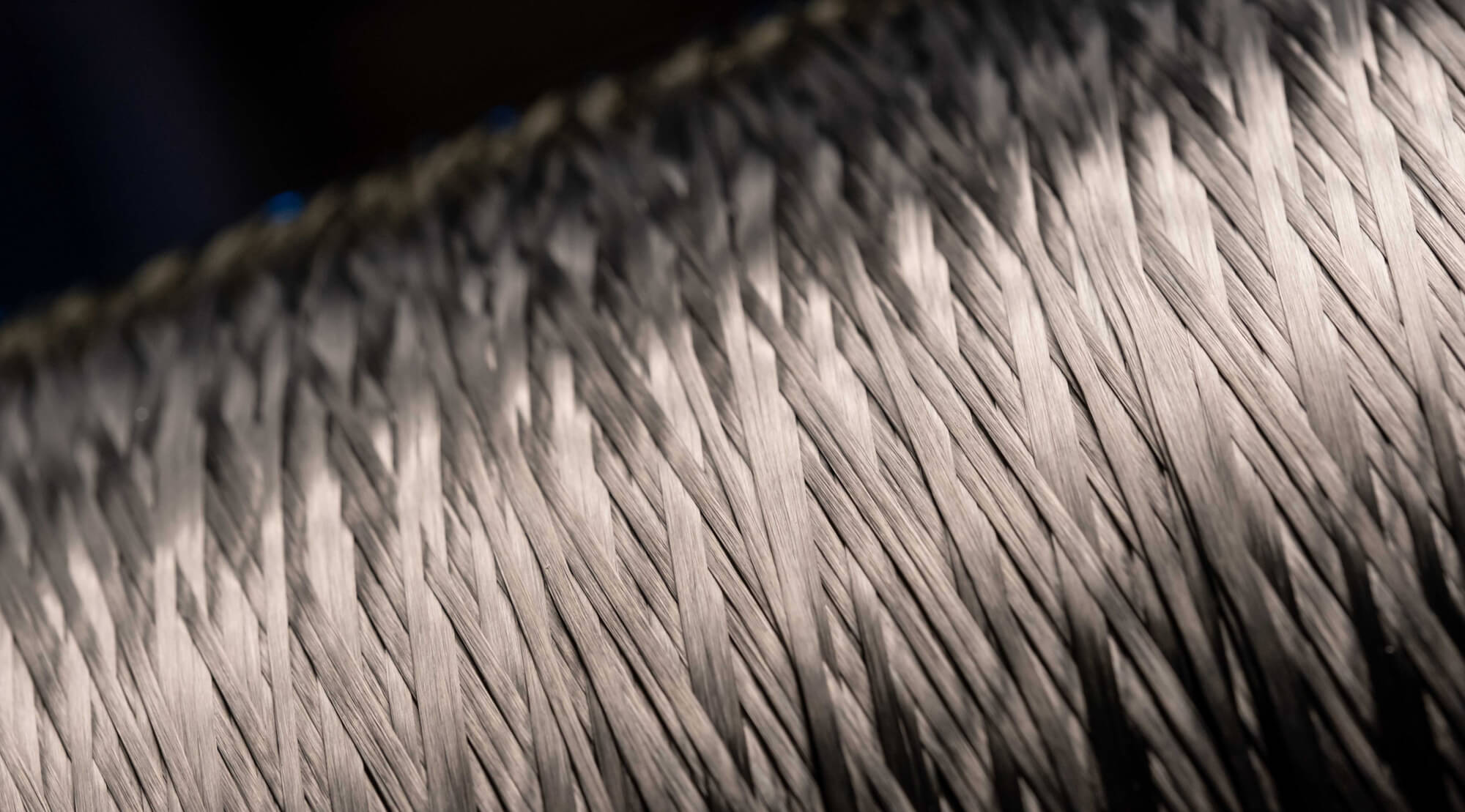
How to Use Torayca® Carbon Fibers: Our Recommendations
This page provides general advice on using Torayca® carbon fibers.
Toray Carbon Fibers Europe's
Toray Carbon Fibers Europe guarantees the properties of its Torayca® carbon fibers as specified on its Certificates of Conformity.
These apply exclusively to:
- Tensile strength;
- Fracture elongation and tensile modulus of resin-impregnated fibers;
- Density;
- Weight per meter;
- Sizing agent ratio.
This warranty period begins on the date of manufacture and is valid for two years, provided that storage is under normal temperature and humidity conditions.
We recommend storing our carbon fibers in their original packaging.
Our carbon fiber bobbins are protected from shocks by the cardboard box and internal packaging. Each bobbin is wrapped in a plastic film to prevent contamination from dust, moisture, etc.
The fundamental properties of carbon fiber are related to its chemical structure. It does not deteriorate over time.
However, the sizing agent is a polymer that is affected by temperature, humidity and the passage of time. For this reason, we cannot extend our guarantee beyond two years.
Customers are guaranteed stable and reliable processing of our Torayca® carbon fibers over the two-year warranty period.
Proper Handling and Safe Processing of Torayca® Carbon Fibers
Handling carbon fiber
Torayca® carbon fiber is a high-tech material that requires careful handling. “How to Handle Carbon Fiber Bobbins?”. To benefit fully from the carbon fiber’s properties, special care is required to ensure that it is not damaged during handling and processing. Each bobbin of Torayca® fiber is individually wrapped in a plastic protective film. This film must be carefully removed by hand without using sharp objects.
Using carbon fiber
Each of our customers has specific production processes. Here are some general recommendations to optimise your processes when using our Torayca® carbon fibers.
Unwinding Carbon Fiber Coils
Before processing, we recommend a preconditioning step. After removing the plastic film, the coils must remain at least 48 hours stored at a temperature of between 20-35°C and relative humidity of 40-80%. This preconditioning step is essential to unwind the coils properly.
The ambient humidity impedes carbon fiber from rubbing on the coil, preventing it from charging with static electricity. A static-charged coil would draw broken filaments to its surface. During unreeling, broken filament rings may form. In addition to a loss in the final product’s quality, this could lead to carbon fiber breakage.
Depending on our customers’ processes, coils are either emptied axially or radially. We recommend that our customers adapt their process to a radial wire feed. This radial wire feed reduces the friction of the fiber on the coil and its cardboard mandrel.
Our customers’ processes generally require tension control of the carbon fibers. We thus recommend to our customers to control the wire feed torque through the cardboard mandrel of the coils. The mandrel is sized for this purpose. It is essential not to control carbon fibers tension by using direct friction on them. Due to their chemical structure in graphitic planes, carbon fibers are highly sensitive to abrasion.
Processing
We suggest minimising friction areas as much as possible during carbon fibers processing. This will reduce the number of broken filaments or fuzz.
To ensure low friction, we recommend that you:
- Reduce or remove contact angles with process elements such as roller and rail guides, etc.;
- Adjust the surface roughness of the process elements in contact with the fiber. The carbon fiber sizing agent may stick or be damaged by excessively smooth or rough elements;
- Adjust the voltage during processing.
Some processes are designed to spread carbon fibers and may use a heat source to alter the sizing agent’s behaviour. It is essential to take into account the reaction of our sizing agents to this temperature variation. Too high a temperature can cause processing problems or risk of volatile organic compound (VOC) emissions.
Do not hesitate to contact our team for a complete study of the recommended maximum operating temperatures.
Safety measures
Carbon fiber is electrically conductive. When broken, these monofilaments of roughly 5 to 7 microns in diameter can disperse quickly in the air. Therefore, insulation of the electrical equipment in your workshop is crucial to avoid short circuits.
Regarding personal safety, finely dispersed carbon fiber can cause irritation.
Also, under excessive heat, thermal degradation of the sizing agent can generate hazardous decomposition products.
Do not hesitate to contact us for any further information.
Our Technical Support team can also visit your facility to provide personalised advice.

